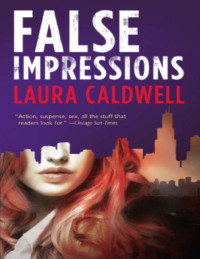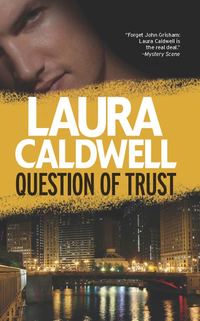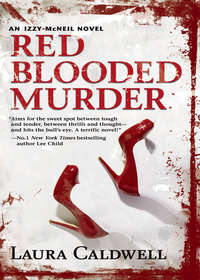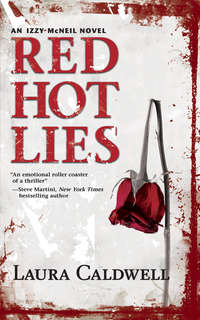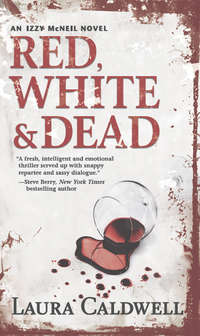
Полная версия
A Clean Slate
She cranked up a Rolling Stones CD and tossed me a beer. It was dark outside, but the apartment seemed to be glowing. Because of our afternoon champagne infusion, we were feeling a little goofy, and we danced around her kitchen for a while, singing into our beer bottles.
“All right,” Laney said after a few songs, “I need to redo my makeup and find an outfit that’s going to make me look half as amazing as you. Come to my room and help me decide what to wear.”
“Sure.”
As I walked through the living room toward the bedroom, my eyes caught on the baskets of photos Laney kept by her fireplace—one for childhood and family photos, one for high school and college, and two more for recent pictures.
“I think I’ll flip through these for a second,” I said, sinking onto her couch and picking up the high school/college basket.
“No problem.”
I think she sensed what I wanted—to test my memory, to make sure it wasn’t only the last five months that I couldn’t remember.
She turned the music down a little, and soon I could hear the slide of hangers and the opening of drawers from the gaping door of her bedroom.
The few photos on top of the basket were of Laney’s college friends, people I’d known vaguely from when I visited her during that time. Normally, I would have flipped through all of them, but I was more focused now. I was looking for pictures of myself.
The first one I came to was a shot of Laney and me in Tijuana, and I got a swoop of relief through my belly, because I could remember that time perfectly. I could even remember the hot Mexican guy who’d taken the picture. We’d been in San Diego for spring break, and we took a day trip into “TJ,” as all the San Diegans called it. We were giddy with the exchange rate and spent the day buying bright, coarse Mexican blankets and silver jewelry before we spent the rest of our money on tequila shots and margaritas. The photo in my hands was taken right before the last bus back across the border, and both Laney and I were rosy with drink, huge careless smiles playing on our faces.
As I dug deeper, I hit on smaller photos, rounded at the corners, taken when 3x5 was the usual photographic dimension. One of my favorites was there—Laney and I standing in front of a row of gray lockers, my Nikon on a strap around my neck, Laney clutching a clipboard to her chest. It had been taken only three days after we’d met, and once again, I had a near perfect memory of that day. We’d been just outside the yearbook office when someone had said they needed a photo of us for the staff section. Both Laney and I wore too much makeup and tidal wave bangs—bangs that arched above our foreheads and came to rest below one eye. Right before the photo was taken, Laney leaned in and threw her arm around me, a gesture that made me nearly weak with relief. I’d hated being new in the school, but after that moment, I knew I was going to be okay.
I picked through the basket, looking for pictures of my old boyfriends, thinking that maybe the breakup with Ben had something to do with the memory loss, and maybe I wouldn’t remember my exes. But I easily found and remembered a picture of my high school boyfriend, Ted, whom I’d lost my virginity to in the stockroom of the convenience store where he worked, and Steve, my college boyfriend, who looked stoned as he posed in front of one of the landscapes he’d painted.
Laney has always called me a serial monogamist, but it’s not really an accurate term. While it’s true that I’ve had almost as many boyfriends as I’ve had first dates, I don’t go from one to another to another without a break. In fact, I’ve always tried to avoid that pattern, having seen my mother date a long string of guys, only to end up with heartbreak. Instead, I have serious boyfriends, and if we break up, then I’m alone—no blind dates, no pickups in bars—until I find someone I truly, truly want to go on a date with. Laney claims this trait has weeded out far too many candidates and leaves no room for flings. Her point is that flings are, by design, to be had with completely inappropriate men—the ones you find attractive, but would never date for one reason or another. And yet the whole fling thing has always seemed a waste of time to me, particularly given my goal of being married with one kid by the time I’m thirty-five.
I picked up a stack of pictures toward the bottom of the basket and quickly discarded them one by one onto the coffee table like a blackjack dealer. With each slap of a picture, I mentally listed the who, where and when, building up a confidence that most of my memory was intact. Senior prom with Ted, me in a hideous chartreuse gown that make me look jaundiced; Laney and me after a football game, clearly about to pass out; on the beach in Florida with Laney’s sister, Sophia; Laney’s kleptomaniac college roommate, Tara. When I came to one of Laney, Dee and me, my hands froze. I’d been a senior in college, full of myself and how cool I was. Dee was still in high school and had used the trip as an excuse to “check out the campus,” when what she really wanted was to drink beer and hang out with me.
In the photo, Dee’s light brown hair is short, and she’s laughing—as she so often was—sandwiched between Laney and me, her head turned slightly toward mine. The pain of losing her rushed in like a hurricane.
According to Ellen Geiger, the psychiatrist I’d seen, everyone who suffers the loss of a loved one ruminates (her word) on the last time they spoke to or saw the person. I was not the patient to change that pattern. For months afterward, it was all I could think about—the last time I’d spoken to Dee and the last time I’d seen her, in January.
Dee had driven up from the University of Illinois to visit me, and we’d spent the weekend in our usual way—shopping during the day with Mom for clothes and boots and jewelry we didn’t need, and at night going out with Ben and Laney, regaling them with stories of the astounding mix of freaks and psychopaths our mother used to date. Ben and Laney adored Dee as much as I did. It was hard not to. She had a little-girl way of holding her head down and drawing her eyes up that made you want to take care of her, and yet she could drink like a Russian soldier. And that laugh of hers was impossible not to love—a buoyant, soft-at-first chuckle that grew into a belly laugh.
On Monday morning, when Dee was supposed to leave, it was a silver-gray day, the sidewalks slick with ice, the city covered in a freezing fog. I had an early meeting, and so I was gone before she got up, leaving a note to help herself to breakfast and have a safe trip back. The usual banalities. She called me at work, though, wanting to chat, telling me about some dream she had about lobsters, relating a story she’d seen on the news that morning, and finally asking me where I kept the coffee filters.
“Third cabinet from the fridge.” I tried not to sound annoyed. Dee loved long, chatty phone conversations (I didn’t) and she was always calling me at work during her study breaks, hoping for an hour-long talk.
“What about bagels?” Dee asked. “Do you have any bagels?”
“I don’t know, Dee, look around.” I scrolled through my e-mails, anxious to get back to work. My meeting had been disastrous, and the market had just opened.
“Maybe I should visit Mom at work before I leave. What do you think?”
“Whatever you want.”
“I haven’t even seen her office yet. Where’s the building? It’s somewhere on Michigan, right?”
“Michigan and Randolph.”
“Yeah, maybe I’ll just stop in. Although I do have two papers to write.”
At that point, Ronald Han, my boss, who was known around the office as Attila the Han, stopped by my desk and stood over me with a frown, brandishing a stack of faxes. He drew a line across his neck with his finger.
“I’ve got to go, Dee.”
“Oh, all right. But what do you think? Should I pop in to see Mom?”
Attila slapped the faxes on his palm.
“I think you should just get on the road.” I deduced that if she stopped in to see Mom, she might very well “pop in” to see me, too, and it was proving to be a much too hectic day for visitors.
“Yeah, you’re probably right.”
“Okay, see you then,” I said, and hung up.
Two hours later, I got a call from the state police, and two hours after that I saw Dee for the last time when I identified her bloody body at Cook County Hospital.
The memory of that morning reverberated in my brain now until I had a hard time breathing, wondering if maybe I was going under again, if I would soon forget this moment, too. But after a second, the air was a little clearer, and I was still there, still holding her picture, still missing her like crazy. At least, I consoled myself, I remembered. I seemed to recall everything about myself and my history except the very recent past.
With that thought, I picked up Laney’s latest basket of pictures, the ones taken during the last few years, and sure enough, I seemed to recognize all those as well. Actually all but one—a photo of Laney and me leaning together at a lunch table. I recognized the restaurant, a brunch place where we frequently met on Sunday mornings to dissect our weekends. Based on our clothes, the photo had probably been taken in summer…but I couldn’t remember having this picture taken at all. My earlier confidence evaporated, leaving a hollow feeling in my stomach.
I noticed how odd I looked in the photo. It wasn’t my hair, which was pulled back the way I used to often wear it, or my outfit of khaki shorts and a T-shirt. It was my face, and the utter lack of a genuine expression on it. My head was next to Laney’s, and she was smiling widely, but my face was frozen. Sure, I was smiling, but it was forced and tight, the grin failing to reach my eyes.
Laney slid into the room then, holding her hands away from her body for an outfit inspection.
“Adorable,” I said. She wore a shorter black skirt, a sweater in a deep wine color and matching lipstick.
“Thanks.” She dropped her hands. “What’s that?” She came around the couch and stood behind me, looking over my shoulder.
I lifted the photo so she could see. “It doesn’t even look like me.”
A second went by. “It really wasn’t you,” she said. “You hadn’t been you for a long time.”
I looked at my grim image one more time before I tucked it, facedown, into the bottom of the basket.
“Where are we going?” I’d been so distracted by my haunted face in that picture that it hadn’t dawned on me to ask the question until we were already in a cab, flying down Lincoln Avenue, past lit-up bars and restaurants and outcroppings of brick town houses much like the one I used to own.
“Tarringtons,” Laney said.
Tarringtons was one of our old haunts, a place where we used to know each and every bartender. I couldn’t say when I’d last been there, but I was sure it had been over a year. Ben and I had fallen into that relationship stage where we didn’t go out that often, happy to stay home, tucked away in the town house, making linguini and watching movies (weird little independent films if it was my night to pick, The Godfather or some other mobster flick if it was his). The problem with that stage, of course, is that when you come out of the relationship, as I apparently had, you feel odd going back into the old stage, the go-out-every-night-and-make-witty-small-talk stage. I hoped I was up to it.
The smoke hung like nimbus clouds from the ceiling as Laney and I walked in. Tarringtons was a long, thin, oak-lined place with a wooden bar to the left, the rest of the place scattered with stools and tall round tables. At the front, a shaggy guy played acoustic Van Morrison tunes.
We made our way to the bar and snagged the last two empty stools. Laney ordered margaritas, our cocktail of choice. I started to ask her for more details about Gear, but we were soon interrupted by a shout and a round of hugs from Jess and Steve, two friends of ours from Laney’s days at an advertising agency. Jess and Steve both still worked there (at least as far as I knew), and they both still did everything together, but for different reasons now. For years, while they were “just friends,” we were constantly telling Jess that they should have sex and get it over with, but she swore they weren’t like that. Then one day, a year and a half ago, they’d announced that they were, in fact, like that. They were in love, they’d discovered, and a few months later they were engaged. We’d been hearing about the wedding plans all year and in fact, if I remembered correctly, it was coming up soon.
“Oh my God,” Jess said. “Is it Kelly McGraw, blast from the past, or is it a vision?”
“It’s me,” I said, letting myself be pulled into another one of Jess’s surprisingly strong hugs. Everything about Jess was tiny—her miniature frame, her rosebud mouth, her hands and feet—and although she hated being called “cute,” she was probably going to be stuck with the term her whole life. Steve was just the opposite. Tall and gangly, with an unfortunate resemblance to Ichabod Crane.
“You look unbelievable,” Jess said. “Where have you been and what have you done to yourself?”
“We had a little makeover day,” Laney said. “Shopping at Saks and then the works at Trevé.”
I smiled at her, thankful for her answer and the diversion from the question about where I’d been for so long. I wasn’t prepared to broadcast my memory loss, and I couldn’t very well use Ben as an excuse for not being around, since everyone probably knew we’d broken up months ago.
“I won’t even ask what you spent,” Jess said, “but whatever it was, it was worth it. You look beautiful!”
Behind her Steve nodded, and I thanked them profusely, the compliments making me sit taller on my bar stool.
“So the wedding’s soon, right?” I asked as Laney turned to the bar and ordered drinks for Steve and Jess.
“One week from today,” Steve said. “According to the schedule Jess set, we should be home right now writing out place cards, but we needed a break.”
“He needed a break,” Jess said. “Anyway, Kell, we’re so bummed you can’t be there.”
I couldn’t be there? Why not? These were two of my good friends. An uncomfortable silence fell.
“Right. Well, I was going to be busy.” I glanced at Laney for some help.
“With that charity thing,” she said.
I had no idea what she was talking about, but by her expression and the way she was nodding slowly I could tell that she was making it up. I had, apparently, declined the wedding invitation because I had another date with my couch and my antidepressants.
“Right,” I said. “The charity thing. But I’m not doing that anymore, am I?”
“No,” Laney said. “It got cancelled, right?”
“Right. So I’ll be able to go, after all. Is that okay?”
“We’d love it,” Jess said, but she and Steve exchanged worried looks. “The thing is we already turned in our seating chart. I don’t know if we can change it.”
“I’ve got an idea,” Laney said. “I was planning on bringing Gear, but he was going to have to leave early to go to some gig, so why don’t I just bring Kelly as my date. Would that work?”
“That would be perfect!” Jess said in a relieved voice. “I’m so glad you’ll be there.”
“Me, too.” I squeezed Laney’s hand.
I loved being out and about like this, loved seeing my friends. So why hadn’t I done it for so long? Why had I holed myself up in that apartment and turned down a wedding invitation? I wouldn’t think about it. Not now—maybe not ever.
I helped Laney order another round of drinks, then more cocktails when other friends arrived. We made a tight circle near the bar, shouting over the music, laughing at old stories, clinking glasses. And then I felt him. My mouth slowed down, my head turned. Ben. Pushing through the crowd. He looked handsome in a thick wool sweater, his brown hair tamed and combed away from his face, his cheeks a little flushed from the cold outside. Behind him, another Toni look-alike trailed along, and when I looked closer, I could see they were holding hands. Therese. The girlfriend.
Ben was smiling, looking right at our group, and I was panicked at how I was supposed to act. From what Laney had told me, I’d been trailing after Ben like a puppy for the last few months. But if Ben or Therese were unhappy about seeing me, they didn’t show it. They walked up to us, calling hello, hugging a few people, while Laney glared at him. Ben knew Steve from college, but clearly Laney hadn’t expected him to be here tonight.
When he reached us, Ben nodded at Laney. I felt my heart beating hard under my new bronze sweater, and I wondered if anyone could hear it. Laney gave him a terse nod back, and then Ben turned to me with an expectant smile.
“I’m Ben,” he said, apparently not recognizing me. He started to raise his hand to shake mine, but then froze, the smile dropping from his face. “Kell?”
“Hi, Ben.” Be brave. Be brave.
He gave a little shake of his head, the one that reminded me of a dog shaking water off its coat, the gesture he made when he was trying to clear his brain of something he couldn’t make sense of.
“Jeez.” He stared at my hair, my face, my clothes. “What…ah…what happened to you?”
He made it sound as if I’d been mauled by wild dogs.
“I’m sorry,” he said. “I didn’t mean it like that. You just look so different, especially from this morning.”
Was it only that morning that I’d stood in front of his apartment, frenetically pushing the buzzer?
“You look great, though.” His words came fast now, almost tripping over themselves. “You look better and beautiful, and I’m glad to see it, and—”
Just then the woman I assumed to be Therese wedged herself into our conversation and cast a look of disdain at me, then one at Ben for good measure.
“Hi,” I said, as politely as possible. “I’m Kelly.”
“I know who you are.” She raked her hands through her sandy, streaked hair and shot me an expression of pure disgust.
I felt myself falter. It had been such a shock to be so close to Ben that I’d forgotten for a second that I’d met this woman sometime over the last five months while I was hounding her boyfriend.
“I need to use the powder room,” Laney said in a too loud voice. “Kell?”
“Sure,” I said, grateful beyond belief.
“Are you all right?” Laney asked once we were in the safe confines of the tiny pink bathroom. She gripped my shoulders and peered at my face.
“I was just surprised, that’s all.” It was true, and I was also surprised to find that I didn’t feel like falling apart. I didn’t feel like crying or shrieking. I had just been so startled to see him, the guy whose kids I thought I’d have, whose underwear I thought I’d wash for the rest of my life. How strange it was to have known him so intimately—to know the way he squeezed his toothpaste tube into a triangular roll and the way he liked to have his forehead rubbed when he had a headache—and yet not to have a relationship with him anymore.
Laney hugged me, then proceeded to give me a rousing pep talk about not letting him get to me, how I was gorgeous and smart and starting a new chapter in my life that didn’t involve him.
By the time we made it back to the bar, I was better. We ordered another round, and I was just starting to enjoy a chat with Jess about their honeymoon plans when Ben interrupted.
“Can I have a second?” He shot me his meaningful look, the one he’d probably given me on my birthday before he’d handed me my walking papers instead of a diamond solitaire.
Jess patted me on the shoulder as if to say good luck, then left us alone.
“So.” Ben looked me up and down again. “You must have had some day.”
“A great day, actually. A little shopping with Laney.”
“And a new haircut.”
I said nothing. Did he really want to talk about my hair?
“You really look amazing.”
“Thanks.” I hated myself for being flattered.
“Well, anyway,” he said, with another doggy shake of his head, “Therese asked me to speak to you about today.”
I looked over my shoulder at his girlfriend who was pretending to be engrossed in a conversation with Steve, but I could sense her antennae pointed in our direction. “Yeah, I’m sorry about that.”
“This coming over to my place really has to stop.”
“I know. It’s done. It won’t happen again.”
He gave me a look of patent disbelief. “Seriously, Kell, Therese is getting upset. This can’t keep happening.”
His mouth continued to move, talking on and on about how poor little Therese could barely sleep, how I needed to get on with my life, et cetera. The more he talked, the more I wanted to laugh, because right then the thought of waiting for Ben at work or calling him repeatedly or buzzing his apartment was ludicrous to me. He’d dumped me, the asshole, and although I still had a hard time wrapping my mind around that, I wasn’t stalker material. I couldn’t believe I’d ever gotten close to it.
Finally I interrupted him, putting a hand on his arm. “I can’t even remember doing those things you’re talking about, but I promise you, it won’t ever happen again. I’ve had a little memory problem….” I let my words trail off, suddenly unsure whether I wanted to admit to anyone other than Laney my loss of memory. Would people think me crazy? Was I crazy?
“What are you talking about?” He actually looked concerned, his gray-brown eyes worried and blinking, and that expression got to me. I found myself telling him the whole story of my day, explaining that I had no recollection of us breaking up or the way I’d been unwilling to let him go.
“Are you joking?” he asked a few times, his eyes skeptical now, as if this might be another one of my crafty ploys to get him back.
“It’s true. I can’t remember my birthday or anything after that until today. But I feel okay.”
“Well, shouldn’t you go to a doctor or something? Get yourself checked out?”
I made a show of holding out my arms, looking down at my legs. “Everything else is intact, so…” I shrugged.
“I don’t know.” He fingered the dark-brown freckle on his right cheekbone. That freckle had always made him self-conscious, because it resembled a speck of dirt, and people were forever telling him he had something on his face. But I used to love that spot. I’d kiss it whenever he walked in my door.
“You do look good.” His eyes trailed over me again.
I wanted to make a snappy retort, something like Yes, I look damn good and you’re not getting any of it, but I kept quiet.
“So how’s Bartley Brothers?” I didn’t want to talk about us or my memory any longer, but wanted to occupy Ben for a while, just to piss off Therese. “How’s Attila?”
“Demoted. He’s pushing paper,” Ben said.
“No!”
Ben nodded. “Lots of people are getting moved around or let go.”
“Yeah, so I heard.”
“Well, obviously. You’d know that since you…”
“Got fired.”
“Right.”
There was an uncomfortable pause.
“So tell me what happened to Attila,” I said.
Ben launched into a story about Attila being investigated for insider information right around the time of the budget cuts. From there, our conversation was easy, catching up on all our co-workers—my ex-co-workers—Ben telling me stories about trades gone awry, and bringing me up-to-date on the market.
We were laughing about another Attila story when Therese sauntered up to us and placed a proprietary hand on his arm.
“Benji,” she said—and I couldn’t help it; I snorted. Benji was a nickname he hated, the name Ben’s brothers used to make fun of him. Both of his brothers were much bigger. They excelled at football and other bone-crunching sports, while Ben had been relegated to running and tennis.
Ben sent me a look as if to say, Shut up, please. I tried to quell the giggles.
“I’m ready to go,” Therese said, shooting me little knives with her eyes. “It’s getting way too uncomfortable in here.”
“How about one more and then we’ll head out?” Ben said.
Therese’s bottom lip dropped a little. I got the impression that she wasn’t used to Ben saying no to her. “I want to go now. We’ve got to be at my mother’s for brunch tomorrow, remember?” She sent me a look of triumph, clearly expecting me to be crushed by this news. Strangely, I wasn’t. In fact, I felt so much better now that Ben and I had had a normal conversation.




